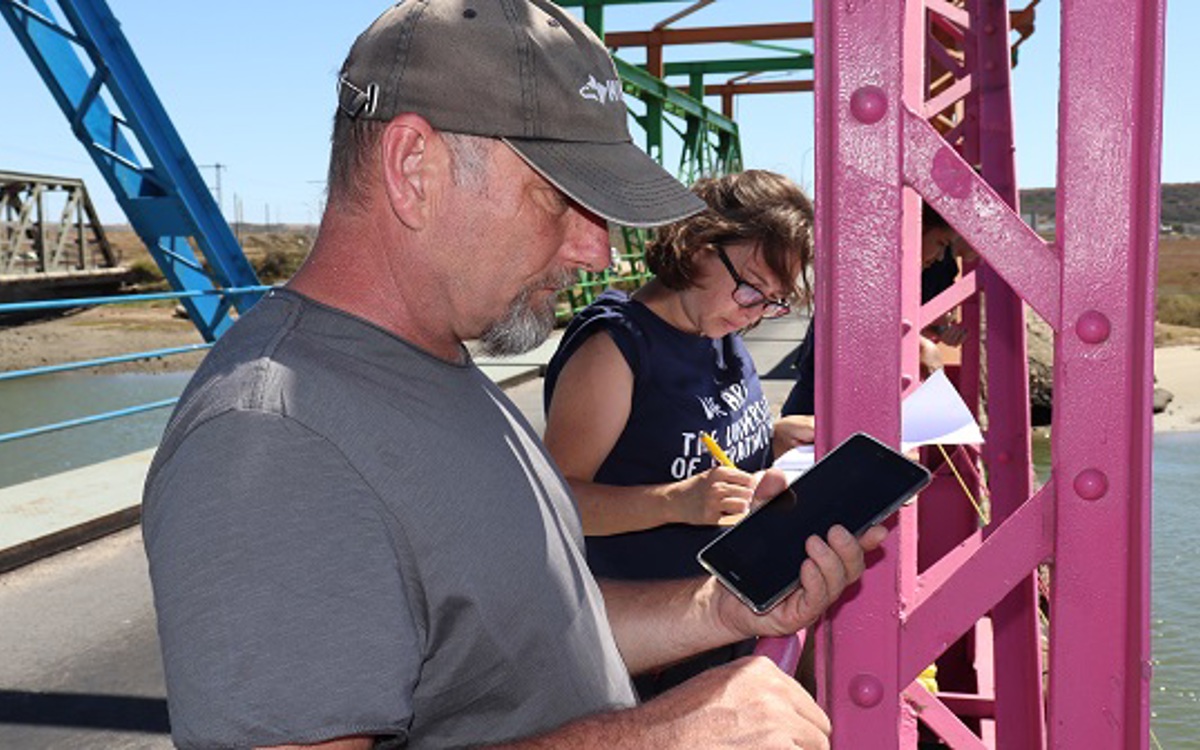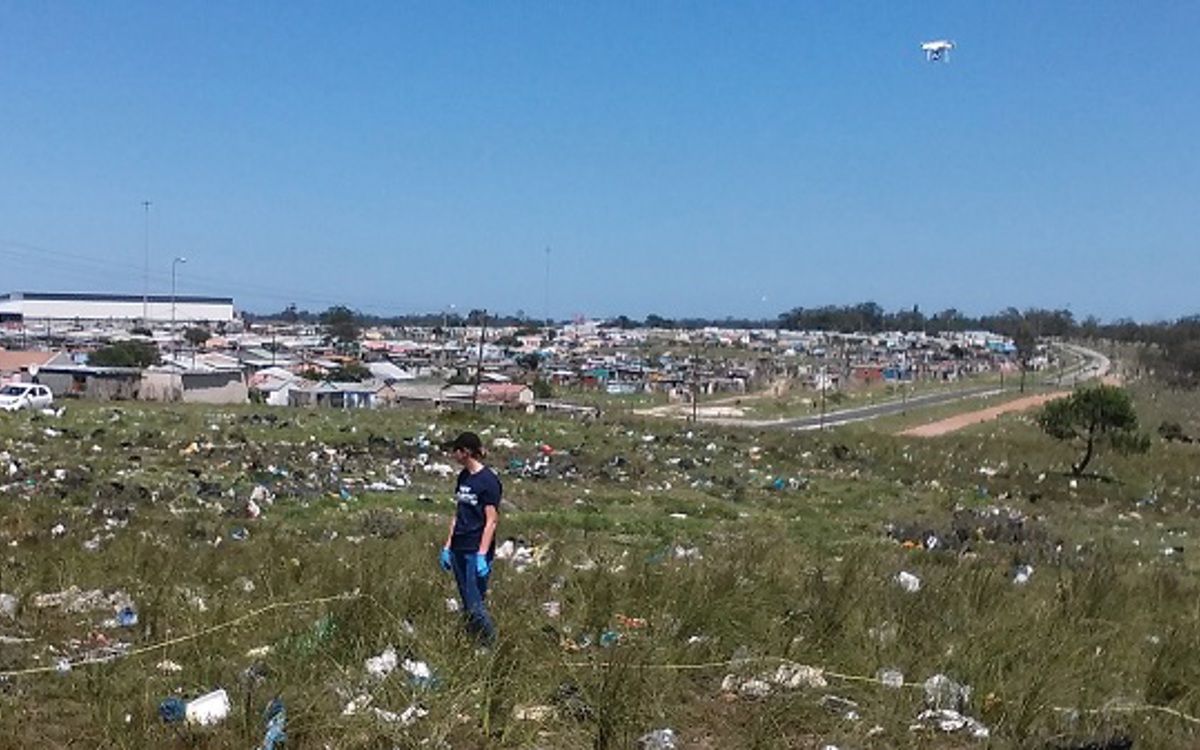
Only 4% of plastic pollution research has been carried out on the African continent; that is a pretty serious knowledge gap. Our current global models of plastic movement in the oceans are missing a huge potential source point, so we need to find out how much is originating from Africa as soon as possible. This was the broad basis for my Blue Charter Fellowship, which was hosted by the Sustainable Seas Trust in South Africa earlier this year.
The research I carried out in South Africa was a bit of a sidestep from my normal research focus, which looks at airborne microplastics in wilderness areas. After seeing the extent of microplastics present in rainfall in remote areas I wanted to make a more hands-on effort to try to understand the issue and find out where it is coming from. I was told by many that South Africa's national flower is a plastic bag caught on a thorn bush – this is a pretty sad thing to think about, but after what I have seen, it is not far wrong, and many nations across the world are facing the same dilemma.
Putting research into practice in South Africa
The extent of 'feral plastic' is truly staggering as we found out while carrying out the drone litter survey with Caelum Tech, but thankfully Africans are stepping up to combat it. Many of the people of South Africa understand the extent of the plastic litter issue and are enthusiastic about creating positive adjustments to their lifestyles and contributing to efforts to help prevent litter entering the ocean.
My research was aimed at gaining valuable quantitative data mapping the output of plastics to the oceans from African rivers to help find the main sources of pollution. The Survey Techniques for Observation of Plastic (STOP) litter system, developed with Kerry Moss and Dr Dee Allen, was created so that even the poorest nations can gather data in a standardised way, helping the public and governments measure the effectiveness of changes in policy and the impact of public actions.

The protocols we developed are now being used in the first ever Pan-African river and beach litter survey. Crucially, the STOP litter system gained the attention of the TV, radio and local newspapers, so the message was passed on to millions of Africans. This exposure has sparked recreational groups like surfers and paddlers to contact me to offer to help gather data while they clean up the rivers and beaches – a prime example of citizen science in action.
Harnessing public engagement
This snowballing interest in the research is really encouraging. I think the take-home message for me, is that we need to engage the public if we are going to achieve anything. We can inform governments, but they will not act until the people demand it of them. This fellowship has taught me a great deal about how we can do our science effectively and still actively engage people in what we do. The public are interested, and they are ready to make efforts to help us, we just need to make a little effort to tell them what we do and why we are doing it.

Initial surveys of three rivers and protocol development has been completed after many hours of sitting on bridges with our mascot puppy Makena, but that is just the beginning. The STOP litter survey begins in 7 African countries in May 2019 through the WIOMSA network (West Indian Ocean Marine Sciences Assoc). The first 21 nets and tablets (puppies not included) are on their way for deployment and a further 10 West African nations have asked to join in. The real purpose of the research is to stop litter getting into the oceans in the first place and as such, the STOP system has already begun it's work through public engagement.
Building momentum through international collaboration
This research could not be possible without the international collaboration of the many nations involved. The app used was developed by a multinational EU effort, funded by Horizon 2020 and led by Daniel Gonzalez Fernandez of Cadiz University in Spain. Staff at my host organisation in South Africa – the Sustainable Seas Trust – and the Nelson Mandela University (NMU) were an integral part of the project. The guidance of Dr Vernon R Phoenix in Scotland and Dr Patricia Corcoran in Canada were also invaluable.
I have since started two projects with NMU and am now co-supervising a PhD student with them. The NMU's Ocean Sciences department has offered a research affiliation to formalise our partnership and make ongoing collaborations more effective.
While my project started as a Commonwealth countries partnership for the #BlueCharter, it has led me to be involved in a multinational research consortium. Nature does not see borders, and we as scientists, should not either. The fellowship clearly shows that using the collective influence of the Commonwealth can have long-term and far-reaching benefits beyond our borders.
